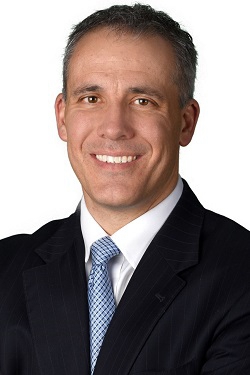 Dry skin is a common problem for people of all ages, especially those who live in harsh climates. However, dry skin on the bottoms of your feet can be more than just an itchy annoyance—it could open your body up to severe infection.
Dry skin is a common problem for people of all ages, especially those who live in harsh climates. However, dry skin on the bottoms of your feet can be more than just an itchy annoyance—it could open your body up to severe infection.
Why Do I Get Heel Fissures?
Cracked heels, also known as heel fissures, can occur whenever your feet get dry or chapped. Like the palm of your hand, the bottom of your foot is protected by a fat pad that expands to cushion your movements. If the skin on your heels becomes too dry, it loses elasticity, thickens, and forms calluses. Calluses cannot stretch when the pad of your foot expands, so they crack, resulting in an open wound on the back or side of the foot.
People may be more likely to suffer heel fissures due to:
- Temperature changes. Feet often become chapped in the winter months but can also lose moisture in hot baths or showers, from artificial heating and cooling, or even walking barefoot in the summer.
- Medical conditions. Psoriasis, eczema, and thyroid problems can remove essential moisture from the skin and make your heels susceptible to cracking. Patients with diabetes risk fissures due to neuropathy and impaired blood circulation to the feet. If not treated quickly, open wounds can progress into diabetic foot ulcers that risk a patient's life.
- Standing for long periods. If your job or lifestyle requires you to be on your feet for long hours, you may need extra cushioning in your shoes to ease the pressure on your heel pads. It would help if you took frequent breaks to elevate your feet and encourage blood circulation.
- Age. People sweat less and produce fewer natural oils as they age, increasing the risk of heel fissures in the older generation.
Prevention and Home Care for Minor Heel Fissures
If you have minor cracks developing on your heels and are at low risk of infection, you may be able to prevent them from getting worse. First, you should keep them clean and apply a fresh bandage daily to prevent bacteria from entering the wound. Additional pressure will only make heel fissures worse (or at least prevent them from healing), so try to rest the foot and elevate it when possible.
To avoid cracked heels in the future, you may need to:
- Drink more water. Dehydration is a significant contributor to dry skin. Make sure you're getting your daily recommended intake of fluids to keep your skin supple.
- Check your shoes. You want to wear shoes that completely envelop your foot and are neither too tight nor too loose. If you avoid sandals (especially those with exposed heels) and walking barefoot, you can retain much more of your foot's natural moisture.
- Get your vitamins. Your skin may dry out more quickly if your diet lacks certain nutrients, such as Vitamin C, Vitamin D, Vitamin E, or omega-3 fatty acids. If you get your Vitamin D from the sun, wear a high-factor sunscreen—a burn will do your skin more harm than good!
- Replenish moisture. Lotions allow you to put moisture directly where it is needed most. Immediately after a bath or shower, pat your feet dry and apply petroleum jelly to seal water into your skin before putting on socks. For tougher skin, you may need to moisturize several times a day.
- Consider a humidifier. If you've noticed other problems due to a lack of moisture in the air (such as a sore throat in the morning or too much static electricity), consider installing a humidifier.
Don't Wait to Get Treatment for a Heel Fissure!
If you have diabetes and a crack has developed on one or both of your heels, you need to see a podiatrist right away. It's unlikely that the fissure will resolve itself, and each passing day increases your risk of severe infection. Our foot and ankle specialists can examine your feet carefully and devise a comprehensive plan to get your feet in tiptop shape. Simply request an appointment online or speak with our team in Twin Falls by calling (208) 731-6321.
|
Related Links: |

